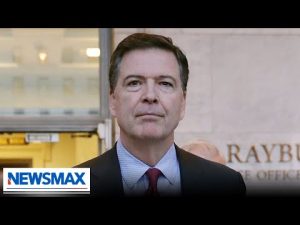New Yorkers woke up to a shock on November 4, 2025, when Zohran Mamdani — a self-identified democratic socialist — claimed victory in the mayoral race and will take office on January 1, 2026. What should have been a celebration of democracy is instead a warning sign for the financial engine of this nation, a city whose future rests on private-sector jobs and entrepreneurship that Mamdani’s rhetoric appears determined to remake.
Mamdani’s rise from state assemblyman to mayor-elect is historic — he is young, outspoken, and backed by the hard left, and his win marks the first time a Muslim and a millennial will lead New York City. That milestone is being framed by the left as progress, but it also signals a tangible shift toward policies that prioritize ideology over practical governance at a time when the city can least afford experiments.
On the campaign trail Mamdani promised sweeping changes: rent freezes on rent-stabilized units, fare-free buses, a $30 minimum wage target, universal childcare, and new taxes on millionaires and corporations. Those policy prescriptions sound great in union-hall stump speeches, but they read like a recipe for capital flight, higher costs, and fewer jobs for the working-class New Yorkers he claims to champion.
His victory speech dropped the warm, conciliatory tone some saw on the trail and instead leaned into sharp, us-versus-them language — invoking Nehru, warning about “billionaires” and even addressing President Trump directly with a blunt challenge. That kind of tribal rhetoric matters because it reveals how he sees power: not as stewardship but as a cudgel to be wielded against opponents and institutions.
Conservatives and defenders of free enterprise were right to be alarmed when Mamdani signaled he would take on landlords, billionaires, and corporate influence; the result will likely be more market distortion and fewer incentives to invest in the city’s renewal. This is exactly the kind of leadership that chases out wealth generators and leaves behind higher taxes, shrinking services, and the hollowed-out neighborhoods so many voters already endure.
We should be blunt: New York’s recovery depends on jobs, safe streets, and a regulatory climate that rewards risk, not punishes it. Mamdani’s rhetoric and policy wishlist suggest he prioritizes political theater over pragmatic fixes, and patience for that approach will be thin when family budgets tighten, storefronts close, and transit systems strain.
Now is the time for conservatives, small-business owners, and patriotic New Yorkers to stay engaged and organized — don’t assume November’s ballots are the end of the story. Watch every budget proposal, hold council members accountable, and make common-sense arguments for liberty, prosperity, and secure neighborhoods so that the next four years don’t become an experiment in forced poverty disguised as compassion.







